Cleaning your pool is essential to keeping it pristine. It keeps the pool water, your pool equipment, and the actual pool last as good as it looks.
In this article, we’ll talk about some of the best practices pool professionals use in cleaning both commercial and residential pools. From the tools that they use down to the chemicals they put into service, we’ll cover everything so you get to clean your pool like a seasoned professional.
But before we begin, let’s talk about why cleaning your pool is important.
The Importance of Pool Cleaning
Whether you have an above-ground swimming pool or an in-ground concrete pool, cleaning will not only eliminate contamination but can also help you make the most out of your investment.
Let me give you an example.
A clean pool can help prevent the growth of unwanted microorganisms and can help hold off unnecessary repairs. Say, you’ve got algae in your pool. It makes the water green, damages the plaster, clogs up the filters, and causes grunge and grime to develop in the pool plumbing harboring bacteria and other microorganisms.
To make matters worse, the growth of bacteria in your pool water can cause health concerns that may harm you and your family.
While these problems can be corrected, it certainly isn’t worth it.
The money you will spend to have the equipment repaired and the pool resurfaced or replastered could have been money you’ve saved. That’s why many pool owners hire a pool cleaning service to have their private oasis professionally serviced. On the other hand, some take it upon themselves to clean their own pool.
Why?
Pretty much like why car connoisseurs like to clean their own vehicles, having to clean your own pool lets you understand and lets you get to know your pool a little better. Cleaning your pool on your own lets you see first-hand where repairs and remodels are needed.
You’ll also get to see the state of the pool interior and the pool deck and get a feel when your pool and your pool deck should be resurfaced or remodelled.
The idea here is that you’ll know just about how your pool works, and with it comes an understanding of basic pool maintenance.
On that note, let’s look at the basic pool cleaning process used by the pros.
Basic Pool Cleaning
It’s amazing to see how fast and efficient pool contractors carry out pool cleaning services. If you’ve ever tried signing up for a weekly cleaning service, you’d notice how quickly these professionals ditch the dirt from your pool.
What’s their secret?
While training and experience largely contribute to their efficiency, having the right tools matter. Here are some of the basic pool equipment you’ll need.
1. Telescopic pole
First, you’ll need a good pole to clean your pool. Not only does a telescopic pole allow you to get to those hard-to-reach areas, but a telescopic pole can be used to connect all sorts of pool cleaning equipment. These include brushes, skimmer nets, vacuum heads, and a combination of equipment.
Surely, a good pole can make your life easier. No wonder pool professionals invest in good poles. Since you’ll be holding your telescopic pole for the most part when cleaning your pool, it’s best to have a good one by your side. One that doesn’t bend, will extend at full length, and one that locks properly.
Most pool professionals use telescopic poles that are eight feet long that can extend to twice its length. This allows them to reach the walls and the floor of the pool conveniently.
2. Pool brush
Next, you’ll want to get a pool brush. While it’s tempting to slap just about any brush on your pole, having the wrong kind of brush can do more harm than good.
This is what separates the pros from the amateurs.
Pool brushes are brushes designed and engineered specifically for cleaning pools and come in many varieties. Some come with nylon bristles while others are outfitted with stainless steel bristles. Pool brushes with nylon bristles are used for fiberglass, vinyl, and painted concrete pools. The nylon bristles can remove dirt and debris without scratching and damaging the surface.
On the other hand, pool brushes with stainless steel bristles are often used for gunite surfaces. The stainless steel bristles can knock off buildups and stains on pools lined with plaster or pebble.
Others use pool brushes that have a combination of both nylon and stainless steel bristles for a thorough yet delicate clean.
Brushing your pool with the wrong brush can damage the surface and weaken the structural integrity of your pool interior. So it’s best to pay attention.
3. Skimmer net
Skimmer nets are used to collect floating dirt and debris from the pool water’s surface. If you’ve got kids using the pool, it can also be a good tool to collect floating toys.
The right skimmer can let you skim the surface of anything, from leaves, twigs, and even dead bugs. It’s important to clean the surface of the pool and rid it off debris as they can decompose, contaminate, and shake off the balance of the pool water. Plus, they’re harder to get out of the water when they’ve sunken to the bottom.
Get a skimmer that’s easy to empty and one that doesn’t break easily.
4. Vacuum hose and head
Lastly, for a thorough cleaning, you’ll want to use a vacuum head and a vacuum hose.
Basically, you’ll want to attach the vacuum head to your telescopic pole and the vacuum hose to suck up all the dirt collected by the head. This allows you to collect all the stuff that’s resting at the bottom of your pool floor.
There are different types of vacuums and it’s best to consult the manufacturer to know what type of product works best with your pool.
Alright. Now that you’ve got the right gear, you might be surprised how simple and easy it is to clean your pool.
- First, attach the skimmer net to the telescopic pole. Lightly skim the surface picking up floating debris from the pool water. Empty the net from time to time as it gets difficult to skim the water the more debris you’ve collected. Just make sure you’ve got a can sitting right next to you so the wind won’t throw the dirt back to the water.
- Next, remove the skimmer from the pole and replace it with the brush. Start with the steps, to the wall, until you reach the floor. You might need to extend the pole so you can reach the deep end. This is where a 16-foot pole comes in handy. Pros often use a single motion, usually pushing the pole forward, so that they don’t disrupt the pool water and scatter the dirt all over. Lightly brush the pool and concentrate on stains and any form of buildup.
- Lastly, to collect the dirt and debris on the pool floor, replace the brush with the vacuum head and vacuum the pool floor the same way you would the floor carpet in your living room.
Cleaning your pool on a weekly basis lets you keep major issues at bay and will help maintain the beauty and longevity of your aquatic escape.
Advanced Pool Cleaning
While skimming the water’s surface and brushing the walls can help thoroughly clean your pool, it can only cover the physical and structural elements of the pool. You’d also want to clean the pool water and rid it of any microorganisms and dangerous pathogens that can contaminate the pool water. To do this, you will need to use pool chemicals.
Pool what?
Yes, you’ve heard that right. Pool chemicals. But don’t worry, these chemicals won’t turn everyone into zombies nor would it poison the whole city. Nevertheless, just make sure to observe proper caution when using these chemicals.
Here are the things you’ll need.
1. Sanitizer
To keep the pool water clean, you’ll need to use sanitizers. Pool sanitizers like chlorine kill bacteria and other microorganisms in the water. Once chlorine is mixed with water, it produces hypochlorous acid (HOCl) and hypochlorite ion (OCl-). These chemicals attack the lipids and destroy the enzymes which render these microorganisms oxidized and harmless.
2. pH booster and decreaser
While some chemicals are used to clean the pool water, others are used to balance the pool’s water chemistry. Maintaining the proper pH level in your pool is important. Too low a pH level and the water becomes acidic, too high a pH level and the water becomes murky and may even turn brown or black.
3. Alkalinity booster and decreaser
Pool alkalinity is closely linked to your pool’s pH levels, this means that if your pool water’s pH is low, your pool water’s alkalinity level is going to be low and vice versa. And like your pool’s pH levels, maintaining proper alkalinity matters.
Should you keep your pool water’s alkalinity too low, your pool water might turn green. On the other hand, having high pool water alkalinity can cause the pool water to be cloudy.
4. Pool shock
Pool shocks are chemicals (granulated chlorine in higher doses) that are used for treating the pool water. Pool chocking is done to remove combined chlorine molecules from the water. It’s also used to remove bacteria from the pool after heavy use. In some cases, pool shock chemicals can also be used to treat pool water of algae and other contaminants.
5. Metal sequestering agent
As the name implies, metal sequestering agents are used to remove water hardness. Too much concentration of metal in your pool water can cause discoloration in the pool water and sometimes, even stain your pool’s interior. You can use metal sequestering agents to prevent unwanted metal stains on your pebble or your plaster which can contribute to further aesthetic and structural problems.
6. Algaecide
Algae is a common problem for most pools, especially those in places with warm weather. Algae is almost as constant as other microorganisms that make their way into the pool water as algae spores are often blown to the pool by the wind and can even be carried by swimmers through contaminated swimsuits.
Algaecides come in various types and are used against different types of algae.
7. Pool deck cleaner
While you’re at it, you might want to use some pool chemicals to clean the immediate area around the actual pool. You can use a basic solution of soap and bleach if you have a wooden pool deck or a harsher chemical solution if you have a concrete or a tile deck.
Now that your pool chemicals are in order, here’s what you need to do to.
- Prepare to test the pool water. It’s important to check the pool water’s chemistry so you’d know where to start and how much of the chemicals are to be adjusted. You can test the pool water on your own either by using a test strip or a test kit. Otherwise, you can have a professional test the pool water for you. Refer to the instructions on the test strip or the test kit to check the status of the water chemistry. While you’re at it, you should also check the size of the pool and the amount of water in it. You’re now ready to add sanitizers.
- When adding chlorine or sanitizers, keep in mind how many gallons of water is in the pool as well as the current chlorine level showed when you test the water. The ideal chlorine level is around 1 to 3 ppm.
- Refer to your testing strip or kit to check the pH level of the pool. The ideal pH level is around 7.4 to 7.6. You should also check the alkalinity of the pool water and make sure that it should be around 100 to 150 ppm.
- You can also test the pool water for metal concentration. There are special test kits designed for this purpose. Once you have the results, add metal sequestering agents as necessary. The same thing goes for shocking agents and algaecides, add only as needed. If you’re not sure about what to do or about how to go about applying the aforementioned pool chemicals, contact your local pool contractor to have the pool water professionally treated.
- Cleaning the deck with chemicals isn’t as complicated as your pool water chemistry. Just a bucket filled with water and detergent would do, especially if you have a wooden deck. If you have a concrete pool, you might want to opt for trisodium phosphate. This chemical is a tad more potent compared to bleach or soap so you might want to put on some gloves before cleaning the deck.
- You can clean your pool better with the help of these chemicals, just make sure to practice proper caution and store leftover materials in a safe area.
Cleaning Your Pool Equipment
This isn’t a comprehensive guide if it didn’t include cleaning your pool equipment. After all, we’re talking about practices pool professionals use.
Why clean your pool equipment?
For the same reason you change the air filter on your truck, or clean the fans off your gaming desktop, cleaning your pool equipment helps you keep your pool in better condition. If you want to maximize the lifespan of your pumps and heaters, keeping your equipment clean can make a huge difference.
Let’s look at some common pool equipment.
1. Pool pump
Considered as the heart and soul of your equipment system, the motor pump is an invaluable part of your pool system. The motor pump is responsible for proper water circulation and helps the water run through heating and filtration. There are several types of pool pumps including single-speed and variable-speed pool pumps.
2. Pool filter
Your pool filter does what a filter is supposed to do, filter the dirt, debris, filth, and grime in the pool water. They keep the pool water clean, which helps make it safe to swim in. There are different types of pool filters including sand filters, DE filters, and cartridge filters.
3. Water outlets
Water outlets are openings in your pool where the water is either sucked in or is released for filtration or heating. There are several kinds of water outlets but one of the most common is the skimmer. They act as the first layer of filtration by “skimming” dirt and debris from the pool water.
Now that you’ve made yourself familiar with your pool equipment, here’s how you go about cleaning them.
Like any pool equipment, pool pumps can also be cleaned and serviced. One of the parts of your pool pump that can easily be cleaned is the impeller.
For the uninitiated, the impeller is one of the main parts of your pool and can be considered as one of the most important components of the pool pump. It propels the pool water at a very high velocity and is the only moving part of the pool pump.
The impeller can get clogged with debris. A tell-tale sign is when the filter pressure runs low or when the pump motor feels and sounds a little strained. You can remove debris caught in the impeller by using a steel wire. Bend the tip with a pair of pliers and pull the debris from the impeller.
You may also contact a pool professional if you’re not confident fishing for debris in the pool pump.
For your pool filter, knowing what type of filter you have is important as the way the filter is cleaned depends on the variety you’re using.
If you have a sand filter, here’s how you do it.
First, you’re going to need two things; a backwash hose and a sand filter cleaner. You’d need to backwash the filter for at least 3 minutes. Then, turn the pump off and switch the valve to “filter.”
Next, remove the lid and pour your sand filter cleaner. Turn the pump back on for a couple of seconds or just long enough to get the cleaner to the filter. Leave the filter overnight and backwash the filter the next day.
For pool owners that have DE filters, here’s how you do about it.
Like sand filters, you’re going to need a few things; a backwash hose, a garden hose, a DE filter cleaner, DE powder, a bucket, and some lubricant.
First, backwash the DE filter. When you’re done, drain the water from the filter and remove the clamps that hold the filter together.
Next, open the filter tank, remove the manifold, and take the grids. Rinse the tank and the manifold using your garden hose. Clean the grid and let the DE power out. Then, replace the grids back to the tank and pour the DE powder mix to the filter.
At this point, you can lubricate the O-rings in the tank. Turn the pool pump on for an hour or so to let the DE slurry get evenly distributed to the filter grids.
Now that was some tough work. Lastly, here’s how you clean a cartridge filter.
- Here’s what you’ll need; a garden hose, a spray nozzle, filter cleaner, and some lubes. First, remove the cartridge and using your garden hose and spray nozzle, rinse the cartridge and use a filter cleaner to remove accumulated dirt and debris. Lubricate the O-rings and replace the cartridge.
- It’s important to take note that when cleaning the filters, make sure to turn the pump off and observe all precautionary measures before cleaning.
- Your pool’s water outlets deserve to be cleaned as much as your pump and your filter. Don’t worry, the steps needed to clean the outlets aren’t as complicated as cleaning the filters. Outlets like skimmers have baskets that trap large dirt and debris. These baskets have to be cleaned so they won’t develop buildups where microorganisms harmful to your pool water can develop.
- First, remove the baskets. Then, rinse it with water and use soap or detergent to remove unwanted buildups. Lastly, replace the basket in the outlet.
Pool cleaning could look like a lot of work, especially, if you factor in that thorough pool cleaning involves the pool’s actual structure, the equipment, and the pool water. While other pool owners work really hard to maintain their investment, others, prefer to work smart.
Automated Cleaning
For those who believe in working smart, automatic pool cleaners are the way to go. Automatic pool cleaners are devices that clean your pool without the need of supervision. Here are some common automated pool cleaners that are used both for commercial and residential pools.
1. Suction pool cleaner
A suction pool cleaner is an automated pool cleaner that uses your pump’s suction power to filter the pool water. It harnesses the force of your pool pump’s suction power and translates that to a turbine to power the suction pool cleaner. They automatically move around the pool to skim nd collect debris at random directions.
2. Pressure side cleaner
On the other hand, pressure-side cleaners use the pressure of the pool’s return water and create a vortex that pulls debris from the water and collects it in a bag attached atop the pressure-side cleaner. It also moves around the pool automatically and randomly searches for sunken dirt and debris.
3. Robotic pool cleaner
Robotic pool cleaners work as stand-alone systems and do not require the help of your motor unlike suction pool cleaners and pressure side pool cleaners do. They also offer stronger pumps and finer filtration compared to the aforementioned devices.
There are also cleaning systems to help treat your pool water automatically. If you don’t like having to manually add pool chemicals, these advanced systems are a must. Here are a few.
1. Pool chlorinators
Pool chlorinators automatically dispense chlorine in your pool. Instead of manually putting in chlorine into your pool, you can attach an automated pool chlorinator to automatically dispense chlorine at your desired rate.
2. Saltwater pools
Pretty much like chlorinators, saltwater pools automatically disperse chlorine into the pool. The chlorine produced is a product of the pool’s salt chlorine generator to produce just the right amount of chlorine to sanitize the pool water.
Final Thoughts
Cleaning your pool is satisfying, especially, when you see your pool in good shape – but it’s still a chore. That’s why busy pool owners still opt to have professionals with 5 Star Pool Service take care of their swimming pools through weekly cleaning services and specialized maintenance solutions.
If you’re still on the fence about hiring a contractor or doing on your own, here’s a quick comparison as well as some pros and cons.
Hiring pool cleaning services
Pros:
- Professional quality services
- Fast and efficient
- Can be bundled with other services
- Preventive maintenance
Cons:
- Can be costly
- Some representatives can be dishonest
- Cleaning your own pool.
Cleaning your own pool
Pros:
- Helps you understand your pool better
- Can be therapeutic
- A good form of exercise
- Saves you money
Cons:
- Time-consuming
- Requires your own tools
- Can damage your pool if you don’t know what you’re doing
Ultimately, we suggest that you do some research before you clean your own pool. It’s definitely not everybody’s cup of tea. Pool cleaning takes time, patience, and practice, but it sure is rewarding.

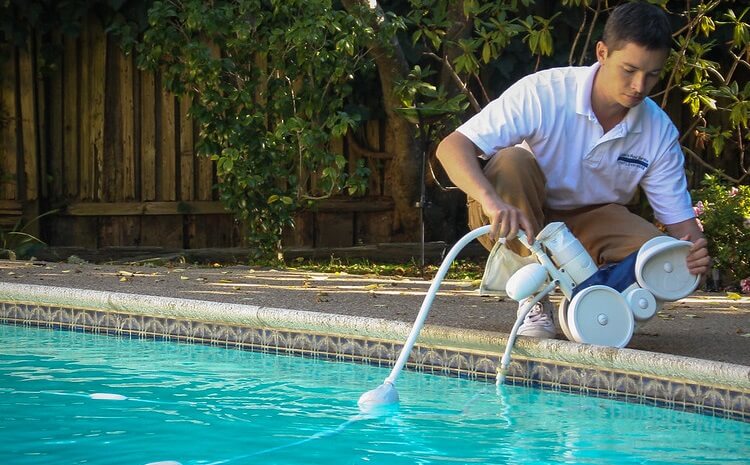
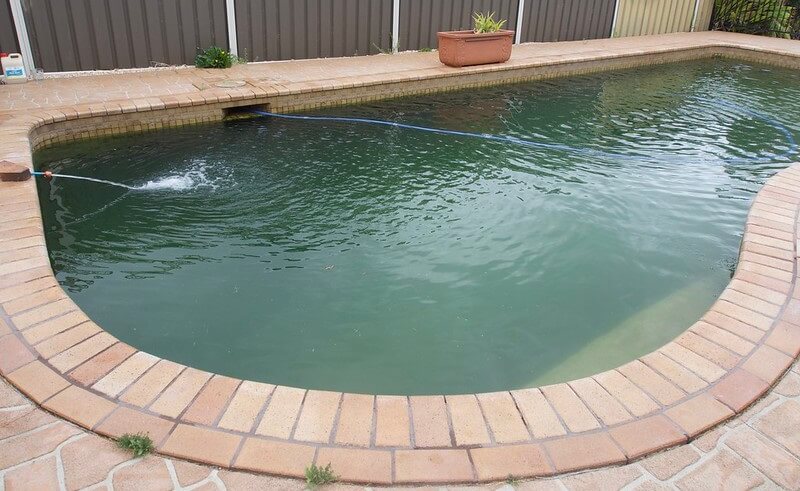
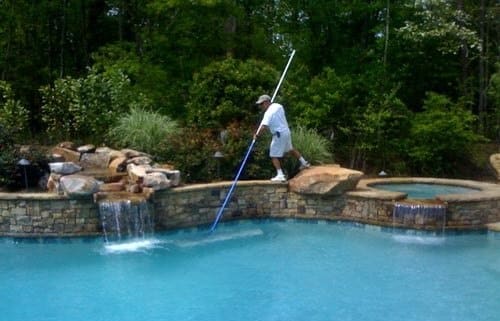
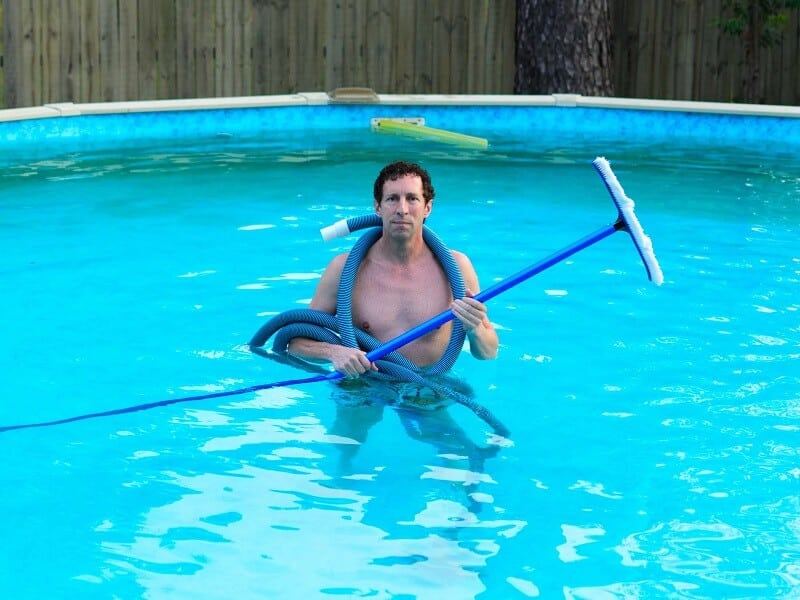
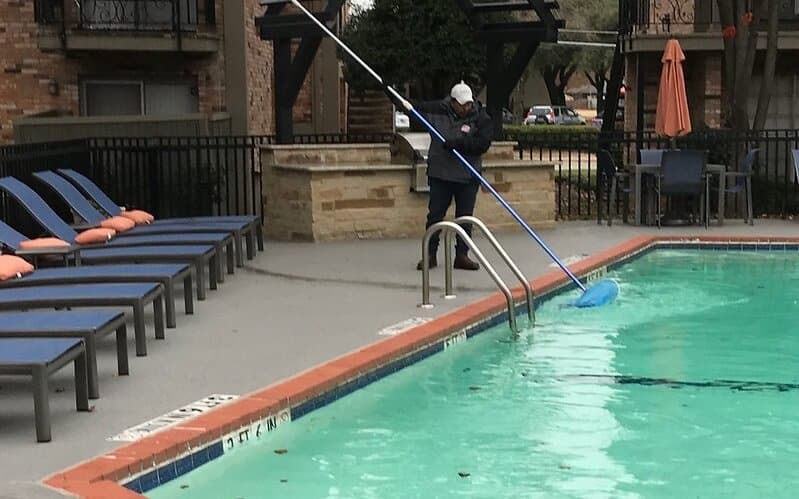
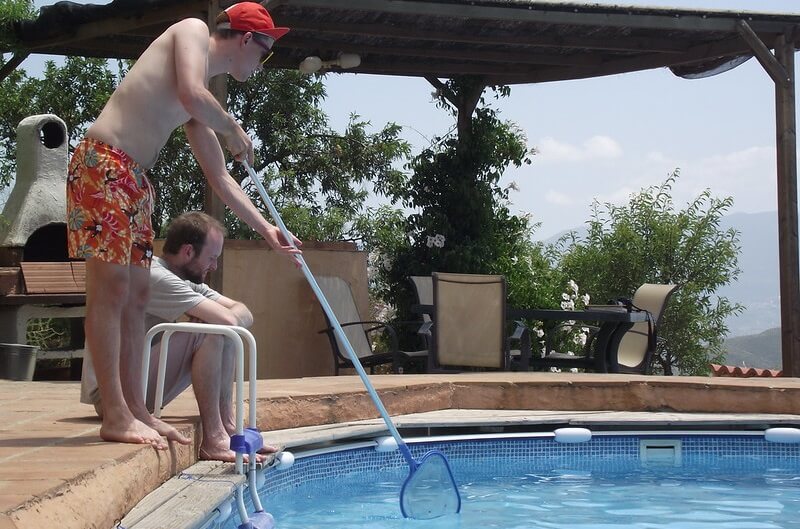
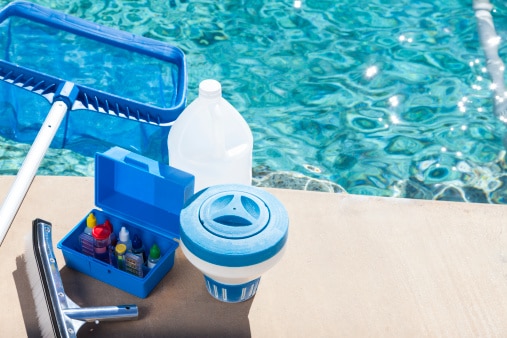
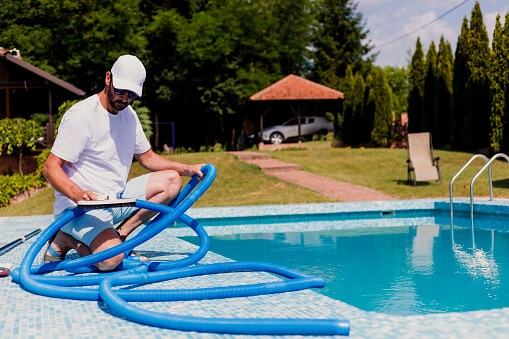
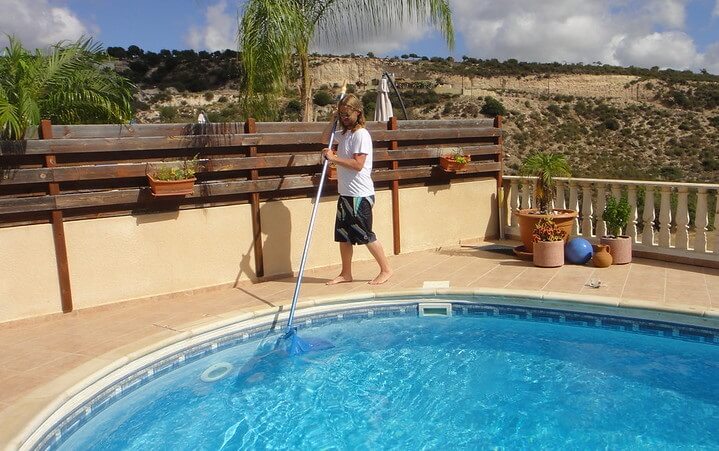
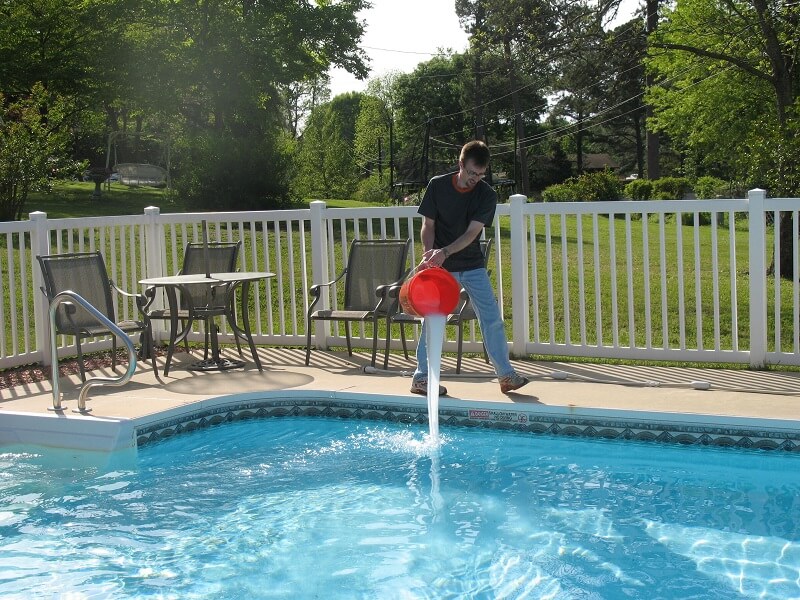
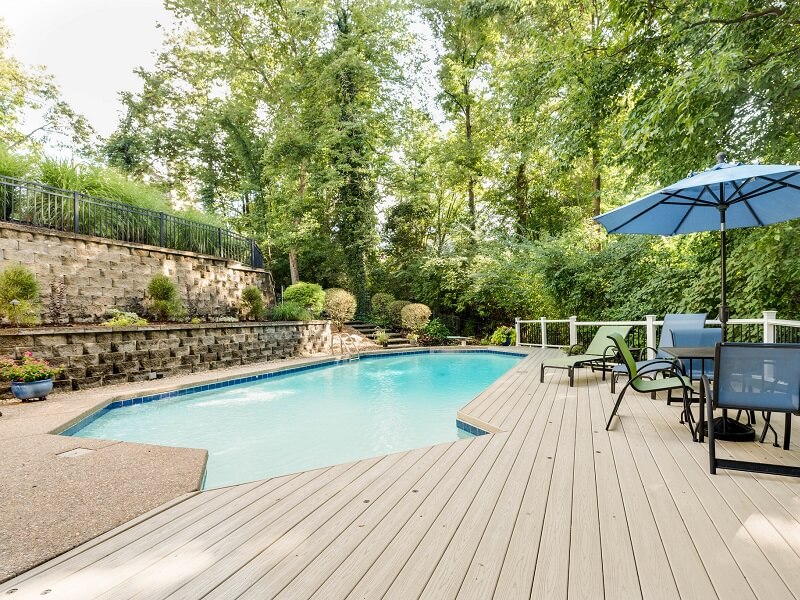

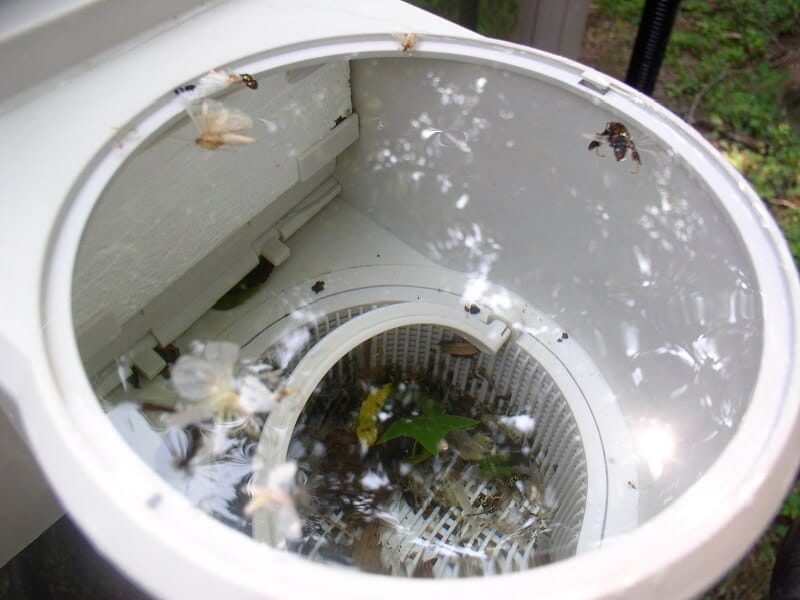
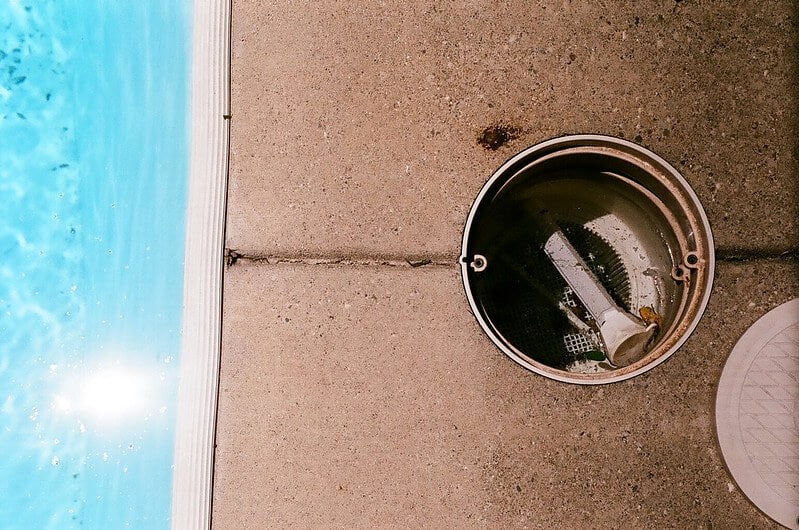
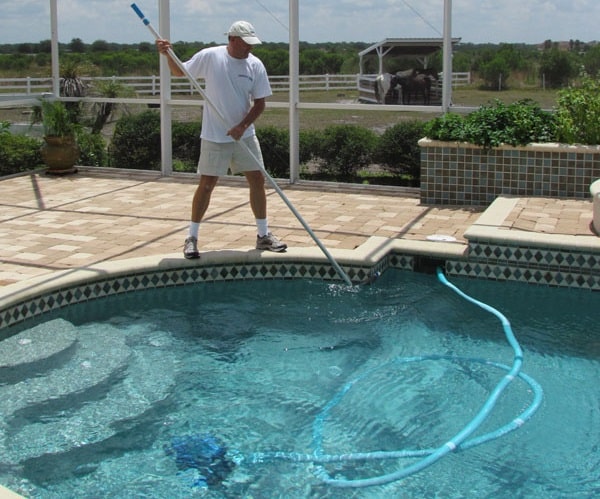

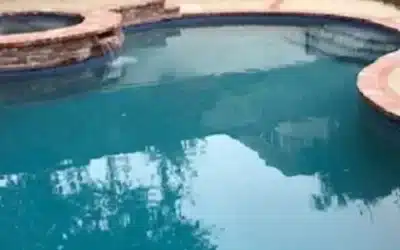
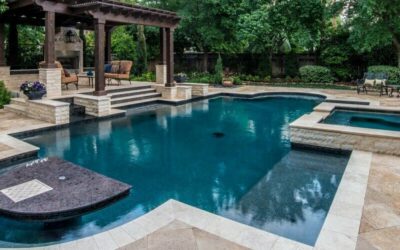
0 Comments